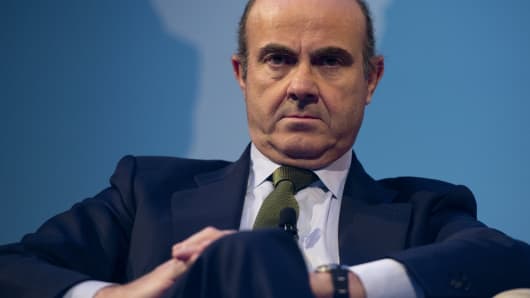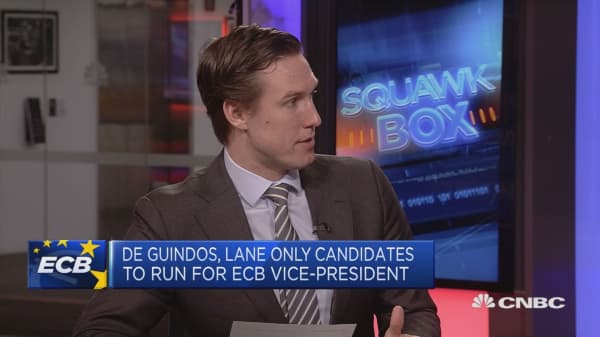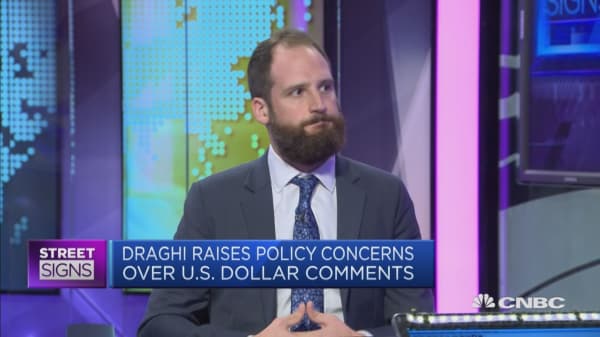The European Central Bank is getting a new deputy — but don't expect a sudden hawkish change of direction
As Europe's leaders prepared to choose a new vice president for the continent's Frankfurt-based central bank, the campaign for the appointment proved brief and anything but hard-fought.
The successful candidate was Luis de Guindos, Spain's current minister for the economy, and given the role's significance for determining monetary policy across the euro zone in the coming years, he should expect some intense scrutiny.
Finance ministers from the 19 countries that use the euro met yesterday to decide between two candidates: de Guindos and the governor of Ireland's central bank, Philip Lane.
Last week, both men had testified privately before members of the European Parliament, and based on the public comments that followed those appearances, the assembled lawmakers sounded far more enamoured with the Irishman. But those parliamentarians enjoyed a merely consultative role in the selection process, and the winds of national interest seemed to favor the Spaniard.





